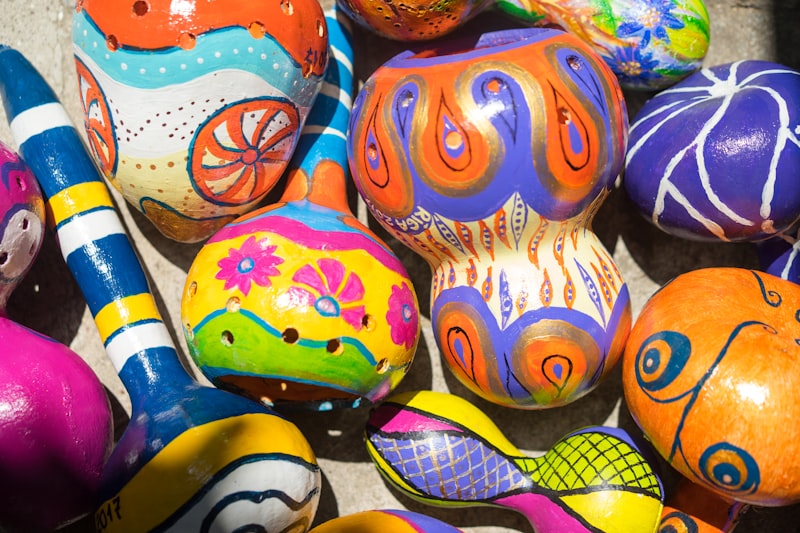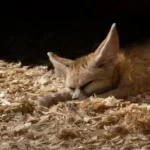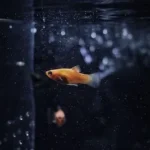- Tentacle dreams can symbolize a desire for power and control, or a feeling of being overwhelmed or controlled by external forces.
- They can also represent adaptability and flexibility in navigating through challenges in life.
- Tentacles in dreams may connect to hidden desires, fears, or emotions that are lurking beneath the surface.
- Tentacle dreams can vary across cultures and religions, with interpretations influenced by Greek mythology, Japanese folklore, and modern literature and media.
Tentacle dreams have captivated and intrigued dreamers for centuries. These dreams, filled with images of twisting and writhing appendages, hold deep symbolic meanings that reflect our subconscious thoughts and emotions. In this article, we will explore the various symbolisms, meanings, and significance behind tentacle dreams, shedding light on the mysteries hidden within these enigmatic visions.
Symbolism, Meaning, and Significance of Tentacle Dreams

1. Defining Tentacle Dreams
Tentacle dreams are vivid dream experiences where tentacles, often associated with sea creatures, appear as prominent symbols or motifs. These dreams transport us to surreal landscapes where logic takes a backseat and imagination reigns supreme. The tentacles in these dreams may vary in appearance, texture, and context, but they consistently evoke a mixture of fascination and bewilderment.
2. Tentacles as Symbols of Power and Control
One of the prominent symbolisms of tentacles in dreams is their association with power and control. Tentacles are often depicted as powerful and highly adaptable appendages that can reach out and influence their surroundings. In the realm of dreams, tentacles can symbolize our desire for control or our perceived loss of control in certain aspects of our lives.
When tentacles appear in our dreams, they may indicate our need for power or dominance over a situation or relationship. These dreams may reflect our desire to assert control or overcome feelings of powerlessness. They can serve as reminders to examine the power dynamics in our lives and assess whether we are exerting healthy or unhealthy levels of control.
Alternatively, tentacles in dreams may represent external forces or circumstances that are overpowering or controlling us. They can symbolize aspects of our lives where we feel trapped, overwhelmed, or manipulated by outside influences. These dreams may be urging us to reevaluate our boundaries and assert ourselves in order to regain a sense of personal autonomy.
3. The Representation of Flexibility and Adaptability
Another significant symbolism associated with tentacles in dreams is their representation of flexibility and adaptability. Tentacles, by their very nature, are remarkably flexible and adaptable appendages that can navigate through challenging situations with grace. In these dreams, tentacles may symbolize our capacity to adapt to different circumstances and find creative solutions to problems.
Tentacle dreams can signify our ability to adjust and transform in response to life’s ever-changing challenges. They may encourage us to embrace change and take advantage of opportunities for personal growth and development. These dreams serve as reminders that by remaining flexible and open-minded, we can navigate through obstacles with ease and resilience.
4. Connection to Hidden Forces and Sexuality
Tentacle dreams often evoke an air of mystery and curiosity, representing the connection to hidden forces within our subconscious minds. These dreams invite us to explore the unknown aspects of ourselves and the world around us. Tentacles in this context can symbolize the hidden desires, fears, or emotions that may be lurking beneath the surface.
In some interpretations, tentacles in dreams are associated with sexuality and sensuality. They may represent repressed sexual desires or anxieties related to intimacy and vulnerability. These dreams can serve as invitations to explore and embrace our own sexual desires or awaken our sensual side.
Additionally, tentacle dreams can be influenced by cultural beliefs, where tentacles may hold specific symbolic meanings. For example, in Japanese culture, octopuses with their many tentacles are associated with intelligence, adaptability, and transformation. Understanding these cultural references can provide further insights into the symbolism of tentacles in our dreams.
5. Unraveling the Mysteries of Tentacle Dreams
Tentacle dreams offer a captivating journey into the depths of our subconscious minds. They hold symbolic meanings that reflect our desires for power and control, our ability to adapt to challenges, our connection to hidden forces, and even our sensuality. These dreams provide opportunities for self-reflection, personal growth, and a deeper understanding of ourselves and our innermost thoughts and emotions.
By exploring the symbolism, meaning, and significance behind tentacle dreams, we can gain insight into our waking lives and navigate through the challenges we may be facing. These dreams serve as windows into our subconscious minds, inviting us to unravel the mysteries hidden within and embrace the messages they hold.
Common Dream Scenarios

Tentacle dreams can take on various scenarios and evoke a range of emotions and reactions. In this section, we will explore some common dream scenarios involving tentacles and delve into their possible interpretations.
1. Being Engulfed by Tentacles
This dream scenario often involves the dreamer feeling trapped or overwhelmed by the presence of tentacles. It can elicit a sense of helplessness or being controlled. Here are some possible interpretations for this dream scenario:
- Loss of Control
Being engulfed by tentacles may symbolize a sense of losing control or feeling powerless in certain aspects of your life. It could be a reflection of external forces or circumstances that are overpowering you. - Entrapment
This dream may represent the feeling of being trapped or confined within a situation in your waking life. The tentacles could symbolize the constraints or restrictions that you believe you are facing. - Overwhelm
The presence of tentacles in this dream scenario may signify an overwhelming emotional state or a flood of unresolved emotions. It could be an indication that you need to address and process these feelings to regain a sense of control.
2. Interacting with Tentacled Creatures
Another common dream scenario involves interactions between the dreamer and creatures adorned with tentacles. These encounters can elicit both positive and negative emotions. Here are some possible interpretations:
- Exploration of the Unknown
This dream scenario suggests a desire to explore unfamiliar aspects of yourself or your environment. The tentacled creatures symbolize the unknown and invite you to venture into uncharted territories, both internally and externally. - Personal Growth
Interacting with tentacled creatures may represent a period of personal growth and transformation. The creatures serve as guides, helping you navigate through challenges and embrace new experiences that foster growth and development. - Emotional Connections
This dream scenario could also signify a longing for deeper emotional connections and intimacy. The tentacled creatures may symbolize the desire for more meaningful relationships and a need to explore the depths of your emotions.
3. Witnessing Tentacles in Water
Dreams that involve tentacles in water can offer unique symbolism and insights. Water often represents emotions and the unconscious mind. Here are some possible interpretations for this dream scenario:
- Emotional Flexibility
Tentacles in water may represent your ability to navigate through emotional situations with grace and adaptability. The dream could be highlighting your flexibility in dealing with challenging emotions or situations. - Connection to Emotions
The presence of tentacles in water suggests a desire to connect more deeply with your emotions. It may be an invitation to explore and understand your emotional world, allowing for greater self-awareness and growth. - Sense of Fluidity
This dream scenario can symbolize how you flow through life, adapting to various situations effortlessly. The dynamic movements of tentacles in water may indicate your ability to navigate through life’s ups and downs with ease and resilience.
4. Other Dream Scenarios
In addition to the scenarios mentioned above, tentacle dreams may encompass various other scenarios. Here are a few more common ones and their possible interpretations:
- Battle/Conflict
Dreams involving tentacles in battle or conflict situations may symbolize internal struggles or unresolved conflicts in your waking life. This dream scenario calls for you to confront and address these conflicts for resolution. - Sensuality/Eroticism
Tentacle dreams with sensual or erotic undertones may represent a desire for deeper intimacy or sexual exploration. It could be an invitation to explore your own sensuality and embrace your desires. - Transformation/Growth
Dreams featuring tentacles undergoing transformation, such as growing or changing shape, can symbolize personal growth and development. This dream scenario signifies an opportunity for positive transformation and an invitation to embrace change.
Remember that dream interpretation is highly personal, and the meanings of dreams can vary significantly from person to person. Consider how each scenario resonates with your own experiences, emotions, and personal associations. Reflecting on the context and emotions surrounding your tentacle dreams is essential for understanding their deeper meanings. Keep a dream journal to track recurring themes and symbols, which can provide further insights into the unique symbolism within your dreams.
Psychological and Emotional Analysis

Tentacle dreams have a unique way of tapping into our subconscious mind, revealing hidden desires, fears, and emotions. By delving into the psychological and emotional aspects of these dreams, we can gain a deeper understanding of their significance and the underlying messages they are trying to convey. Let’s explore the various elements of psychological and emotional analysis in tentacle dreams.
1. Dreams as Manifestations of Unresolved Conflicts or Anxieties
Tentacle dreams can often serve as a platform for our unconscious mind to bring unresolved conflicts or anxieties to the surface. These dreams may contain symbols and scenarios that reflect the internal struggles we may be facing in our waking life. By analyzing these dream elements, we can gain insight into the underlying conflicts or anxieties that need to be addressed.
For example, feeling entangled or trapped by tentacles in a dream may symbolize a sense of being overwhelmed or controlled by external factors. This could indicate unresolved conflicts or anxieties in our relationships, work environments, or personal lives that require attention. The feeling of powerlessness or helplessness conveyed by these dreams may be an indication that we need to confront and resolve these issues.
2. Dreams Revealing Desires for Control or Surrender
Tentacle dreams can also offer valuable insights into our desires for control or surrender in different aspects of our lives. The presence of tentacles in these dreams can symbolize our need for power and control, or it could represent a desire to let go and surrender.
For instance, if we find ourselves engulfed by tentacles in a dream, it may suggest a struggle with the desire for control versus the need to surrender to external forces. This dream scenario could reflect an ongoing internal conflict between wanting to assert our autonomy and feeling overwhelmed by external circumstances. Exploring these dynamics can help us find a healthier balance between control and surrender.
3. Analysis of Feelings Associated with Tentacle Dreams
Examining the feelings and emotions associated with tentacle dreams is a crucial aspect of psychological and emotional analysis. The emotions we experience during these dreams can provide valuable clues about our subconscious thoughts and desires. Here are some common feelings that may arise in tentacle dreams and their potential interpretations:
- Fear and Anxiety
Feeling fear or anxiety in a tentacle dream may symbolize deeper anxieties or fears that are present in our waking life. These dreams may be inviting us to explore and address these fears in order to find resolution or relief. - Fascination and Intrigue
Tentacle dreams can often evoke a sense of fascination or intrigue. These emotions may signify a curiosity to uncover hidden aspects of our psyche or to explore the unknown. These dreams could be encouraging us to embrace these aspects of ourselves and embark on a journey of self-discovery. - Helplessness or Powerlessness
Some tentacle dreams may evoke feelings of helplessness or powerlessness. This could reflect a perceived lack of control in specific areas of our lives or a sense of being overwhelmed by external circumstances. These dreams may be urging us to confront these feelings and explore ways to regain our sense of empowerment. - Curiosity and Wonder
Tentacle dreams can also evoke a sense of curiosity and wonder about the mysteries of life and the subconscious mind. These dreams can serve as an invitation to explore the depths of our psyche, uncovering hidden desires, passions, and potentials.
Ultimately, the analysis of feelings associated with tentacle dreams is highly personal. It is important to explore our individual emotional responses and consider how they relate to our unique life experiences.
Cultural and Religious Interpretations

Tentacle dreams have intrigued and fascinated people throughout history, and their symbolism can vary across different cultures and religious beliefs. In this section, we will explore the cultural and religious interpretations of tentacle dreams, shedding light on how different societies have perceived and understood these enigmatic experiences.
1. Tentacles in Greek Mythology
In Greek mythology, tentacles are often associated with sea monsters and powerful creatures that dwell in the depths of the ocean. The most well-known depiction of tentacles in Greek mythology is found in the story of the Kraken. The Kraken was a massive sea monster with numerous tentacles that could pose a threat to sailors and their ships. The tentacles of the Kraken symbolize its power and ability to entangle and overpower its victims, representing the dangers and mysteries that lie beneath the surface.
2. Octopus-like Creatures in Japanese Folklore
In Japanese folklore, octopus-like creatures with tentacles have a prominent place. These creatures are often associated with both fear and awe. One example is the legendary sea dragon or sea serpent called “Ryūjin” in Japanese mythology. This divine creature is depicted with multiple tentacles and is believed to have control over the seas and the weather. The tentacles represent its ability to navigate through the vast oceans and its connection to nature’s forces.
3. Modern Interpretation
In contemporary culture, tentacles are often associated with science fiction, horror, and fantasy genres. The works of H.P. Lovecraft, an influential writer of horror fiction, have contributed to modern interpretations of tentacles. Lovecraft’s stories frequently depicted ancient cosmic deities with tentacled appendages, such as the famous monster Cthulhu. This representation has influenced modern media, art, and literature, shaping our perception of tentacled creatures as symbols of otherworldly power and cosmic mysteries.
4. Connection Between Physical Conditions and Seeing Tentacles in Dreams
In some cultural and religious beliefs, dreams are seen as messages from the divine or indications of spiritual experiences. Some cultures interpret the appearance of tentacles in dreams as a sign or warning related to one’s physical well-being. For example, certain spiritual traditions associate seeing tentacles in dreams with physical conditions such as illness, injury, or the need for medical attention. These interpretations emphasize the need for individuals to pay attention to their health and seek proper care and treatment when necessary.
5. Symbolic Meanings Across Cultures
Across various cultures, tentacles can hold different symbolic meanings. In some contexts, they may represent adaptability, flexibility, and the ability to navigate through challenges. Tentacles may also symbolize hidden forces or unseen influences that impact our lives. They can evoke a sense of mystery and the unknown, reflecting our primal fears and anxieties toward what lies beneath the surface. In other cases, tentacles are associated with power dynamics and control, either indicating a desire for control or a feeling of being overwhelmed or entrapped.
Exploring the symbolism behind tentacle dreams can lead to a better understanding of our subconscious thoughts and feelings. Whether the dream is interpreted as a desire for power, adaptability in navigating challenges, or as a reflection of our hidden desires and fears, it is important to remember that dreams are personal and unique to each individual. It may be helpful to reflect on what tentacles mean to us personally or culturally and how they relate to our current life experiences. By acknowledging and processing these dreams, we may gain valuable insights into our psyche and find ways to work through any issues that may arise. So, the next time you have a tentacle dream, don’t be afraid to dive deeper into its possible meanings and embrace the journey towards self-discovery.










Leave a Reply